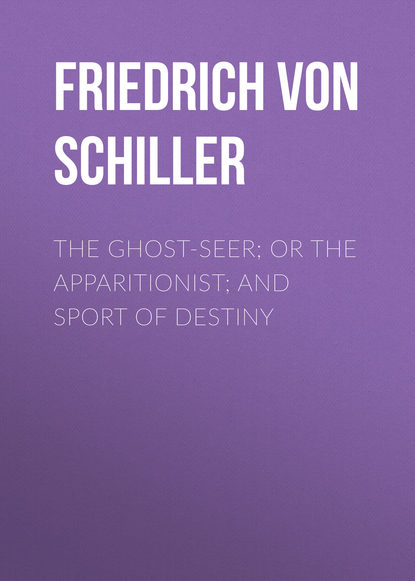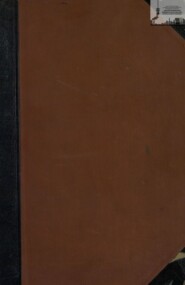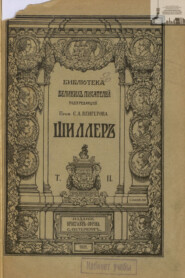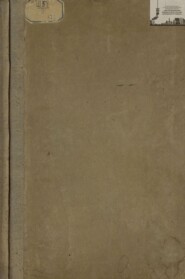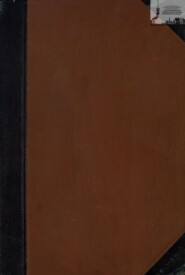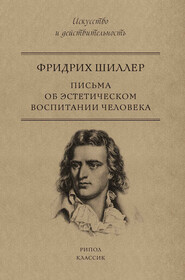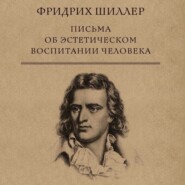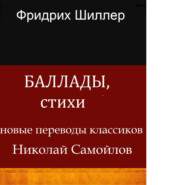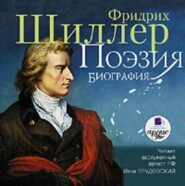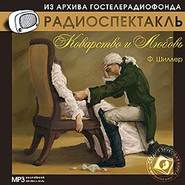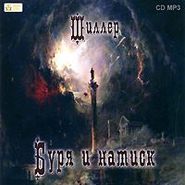По всем вопросам обращайтесь на: info@litportal.ru
(©) 2003-2024.
✖
The Ghost-Seer; or the Apparitionist; and Sport of Destiny
Настройки чтения
Размер шрифта
Высота строк
Поля
“I ought not to have reduced myself to such a necessity?”
I did not answer.
“Oh, of course! I ought never to have indulged my wishes, but have grown gray in the same dull manner in which I was brought up! Because I once venture a step beyond the drear monotony of my past life, and look around me to see whether there be not some new source of enjoyment in store for me – because I – ”
“If it was but a trial, gracious sir, I have no more to say; for the experience you have gained would not be dearly bought at three times the price it has cost. It grieves me, I confess, to think that the opinion of the world should be concerned in determining the question – how are you to choose your own happiness.”
“It is well for you that you can afford to despise the world’s opinion,” replied he, “I am its creature, I must be its slave. What are we princes but opinion? With us it is everything. Public opinion is our nurse and preceptor in infancy, our oracle and idol in riper years, our staff in old age. Take from us what we derive from the opinion of the world, and the poorest of the humblest class is in a better position than we, for his fate has taught him a lesson of philosophy which enables him to bear it. But a prince who laughs at the world’s opinion destroys himself, like the priest who denies the existence of a God.”
“And yet, gracious prince – ”
“I see what you would say; I can break through the circle which my birth has drawn around me. But can I also eradicate from my memory all the false impressions which education and early habit have implanted, and which a hundred thousand fools have been continually laboring to impress more and more firmly? Everybody naturally wishes to be what he is in perfection; in short, the whole aim of a prince’s existence is to appear happy. If we cannot be happy after your fashion, is that any reason why we should discard all other means of happiness, and not be happy at all? If we cannot drink of joy pure from the fountain-head, can there be any reason why we should not beguile ourselves with artificial pleasure – nay, even be content to accept a sorry substitute from the very hand that robs us of the higher boon?”
“You were wont to look for this compensation in your own heart.”
“But if I no longer find it there? Oh, how came we to fall on this subject? Why did you revive these recollections in me? I had recourse to this tumult of the senses in order to stifle an inward voice which embitters my whole life; in order to lull to rest this inquisitive reason, which, like a sharp sickle, moves to and fro in my brain, at each new research lopping off another branch of my happiness.”
“My dearest prince” – He had risen, and was pacing up and down the room in unusual agitation.
[I have endeavored, dearest O – , to relate to you this remarkable conversation exactly as it occurred; but this I found impossible, although I sat down to write it the evening of the day it took place. In order to assist my memory I was obliged totranspose the observation of the prince, and thus this compound of a conversation and a philosophical lecture, which is in some respects better and in others worse than the source from which I took it, arose; but I assure you that I have rather omitted some of the prince’s words than ascribed to him any of my own; all that is mine is the arrangement, and a few observations, whose ownership you will easily recognize by their stupidity.
– Note of the Baron von F – ]
“When everything gives way before me and behind me; when the past lies in the distance in dreary monotony, like a city of the dead; when the future offers me naught; when I see my whole being enclosed within the narrow circle of the present, who can blame me if I clasp this niggardly present of time in my arms with fiery eagerness, as though it were a friend whom I was embracing for the last time? Oh, I have learnt to value the present moment. The present moment is our mother; let us love it as such.”
“Gracious sir, you were wont to believe in a more lasting good.”
“Do but make the enchantment last and fervently will I embrace it. But what pleasure can it give to me to render beings happy who to-morrow will have passed away like myself? Is not everything passing away around me? Each one bustles and pushes his neighbor aside hastily to catch a few drops from the fountain of life, and then departs thirsting. At this very moment, while I am rejoicing in lily strength, some being is waiting to start into life at my dissolution. Show me one being who will endure, and I will become a virtuous man.”
“But what, then, has become of those benevolent sentiments which used to be the joy and the rule of your life? To sow seeds for the future, to assist in carrying out the designs of a high and eternal Providence” —
“Future! Eternal Providence! If you take away from man all that he derives from his own heart, all that he associates with the idea of a godhead, and all that belongs to the law of nature, what, then, do you leave him?
“What has already happened to me, and what may still follow, I look upon as two black, impenetrable curtains hanging over the two extremities of human life, and which no mortal has ever yet drawn aside. Many hundred generations have stood before the second of these curtains, casting the light of their torches upon its folds, speculating and guessing as to what it may conceal. Many have beheld themselves, in the magnified image of their passions, reflected upon the curtain which hides futurity from their gaze, and have turned away shuddering from their own shadows. Poets, philosophers, and statesmen have painted their fancies on the curtain in brighter or more sombre colors, according as their own prospects were bright or gloomy. Many a juggler has also taken advantage of the universal curiosity, and by well-managed deceptions led astray the excited imagination. A deep silence reigns behind this curtain; no one who passes beyond it answers any questions; all the reply is an empty echo, like the sound yielded by a vault.
“Sooner or later all must go behind this curtain, and they approach it with fear and trembling, in doubt who may be waiting there behind to receive them; quid sit id, quod tanturn morituri vident. There have been infidels who asserted that this curtain only deluded mankind, and that we saw nothing behind it, because there was nothing there to see; but, to convince them, they were quickly sent behind it themselves.”
“It was indeed a rash conclusion,” said I, “if they had no better ground for it than that they saw nothing themselves.”
“You see, my dear friend, I am modest enough not to wish to look behind this curtain, and the wisest course will doubtless be to abstain from all curiosity. But while I draw this impassable circle around me, and confine myself within the bounds of present existence, this small point of time, which I was in danger of neglecting in useless researches, becomes the more important to me. What you call the chief end and aim of my existence concerns me no longer. I cannot escape my destiny; I cannot promote its consummation; but I know, and firmly believe, that I am here to accomplish some end, and that I do accomplish it. But the means which nature has chosen to fulfil my destiny are so much the more sacred to me; to me it is everything; my morality, my happiness. All the rest I shall never learn. I am like a messenger who carries a sealed letter to its place of destination. What the letter contains is indifferent to him; his business is only to earn his fee for carrying it.”
“Alas!” said I, “how poor a thing you would leave me!”
“But in what a labyrinth have we lost ourselves!” exclaimed the prince, looking with a smile at the table on which the rouleaus lay. “After all perhaps not far from the mark,” continued he; “you will now no doubt understand my reasons for this new mode of life. I could not so suddenly tear myself away from my fancied wealth, could not so readily separate the props of my morality and happiness from the pleasing dream with which everything within me was so closely bound up. I longed for the frivolity which seems to render the existence of most of those about me endurable to themselves. Everything which precluded reflection was welcome to me. Shall I confess it to you? I wished to lower myself, in order to destroy this source of my griefs, by deadening the power of reflection.”
Here we were interrupted by a visit. In my next I shall have to communicate to you a piece of news, which, from the tenor of a conversation like the one of to-day, you would scarcely have anticipated.
LETTER V.
BARON VON F – TO COUNT VON O —
As the time of our departure from Venice is now approaching with rapid steps, this week was to be devoted to seeing everything worthy of notice in pictures and public edifices; a task which, when one intends making a long stay in a place, is always delayed till the last moment.
The “Marriage at Cana,” by Paul Veronese, which is to be seen in a Benedictine convent in the Island of St. George, was in particular mentioned to us in high terms. Do not expect me to give you a description of this extraordinary work of art, which, on the whole, made a very surprising, but not equally pleasing, impression on me. We should have required as many hours as we had minutes to study a composition of one hundred and twenty figures, upon a ground thirty feet broad. What human eye is capable of grasping so complicated a whole, or at once to enjoy all the beauty which the artist has everywhere lavished, upon it! It is, however, to be lamented, that a work of so much merit, which if exhibited in some public place, would command the admiration of every one, should be destined merely to ornament the refectory of a few monks. The church of the monastery is no less worthy of admiration, being one of the finest in the whole city. Towards evening we went in a gondola to the Guidecca, in order to spend the pleasant hours of evening in its charming garden. Our party, which was not very numerous, soon dispersed in various directions; and Civitella, who had been waiting all day for an opportunity of speaking to me privately, took me aside into an arbor.
“You are a friend to the prince,” he began, “from whom he is accustomed to keep no secrets, as I know from very good authority. As I entered his hotel to-day I met a man coming out whose occupation is well known to me, and when I entered the room the prince’s brow was clouded.” I wished to interrupt him, – “You cannot deny it,” continued he; “I knew the man, I looked at him well. And is it possible that the prince should have a friend in Venice – a friend who owes his life to him, and yet be reduced on an emergency to make use of such creatures?”
“Tell me frankly, Baron! Is the prince in difficulties? It is in vain you strive to conceal it from me. What! you refuse to tell me! I can easily learn from one who would sell any secret for gold.”
“My good Marquis!”
“Pardon me! I must appear intrusive in order not to be ungrateful. To the prince I am indebted for life, and what is still more, for a reasonable use of it. Shall I stand idly by and see him take steps which, besides being inconvenient to him, are beneath his dignity? Shall I feel it in my power to assist him, and hesitate for a moment to step forward?”
“The prince,” replied I, “is not in difficulties. Some remittances which we expected via Trent have not yet arrived, most likely either by accident, or because not feeling certain whether he had not already left Venice, they waited for a communication from him. This has now been done, and until their arrival”
Civitella shook his head. “Do not mistake my motive,” said he; “in this there can be no question as to diminishing the extent of my obligations towards the prince, which all my uncle’s wealth would be insufficient to cancel. My object is simply to spare him a few unpleasant moments. My uncle possesses a large fortune which I can command as freely as though it were my own. A fortunate circumstance occurs, which enables me to avail myself of the only means by which I can possibly be of the slightest use to your master. I know,” continued he, “how much delicacy the prince possesses, but the feeling is mutual, and it would be noble on his part to afford me this slight gratification, were it only to make me appear to feel less heavily the load of obligation under which I labor.”
He continued to urge his request, until I had pledged my word to assist him to the utmost of my ability. I knew the prince’s character, and had but small hopes of success. The marquis promised to agree to any conditions the prince might impose, but added, that it would deeply wound him to be regarded in the light of a stranger.
In the heat of our conversation we had strayed far away from the rest of the company, and were returning, when Z – came to meet us.
“I am in search of the prince,” he cried; “is he not with you?”
“We were just going to him,” was our reply. “We thought to find him with the rest of the party.”
“The company is all together, but he is nowhere to be found. I cannot imagine how we lost sight of him.”
It now occurred to Civitella that he might have gone to look at the adjoining church, which had a short time before attracted his attention. We immediately went to look for him there. As we approached, we found Biondello waiting in the porch. On coming nearer, we saw the prince emerge hastily from a side door; his countenance was flushed, and he looked anxiously round for Biondello, whom he called. He seemed to be giving him very particular instructions for the execution of some commission, while his eyes continued constantly fixed on the church door, which had remained open. Biondello hastened into the church. The prince, without perceiving us, passed through the crowd, and went back to his party, which he reached before us.
We resolved to sup in an open pavilion of the garden, where the marquis had, without our knowledge, arranged a little concert, which was quite first-rate. There was a young singer in particular, whose delicious voice and charming figure excited general admiration. Nothing, however, seemed to make an impression on the prince; he spoke little, and gave confused answers to our questions; his eyes were anxiously fixed in the direction whence he expected Biondello; and he seemed much agitated. Civitella asked him what he thought of the church; he was unable to give any description of it. Some beautiful pictures, which rendered the church remarkable, were spoken of; the prince had not noticed them. We perceived that our questions annoyed him, and therefore discontinued them. Hour after hour rolled on and still Biondello returned not. The prince could no longer conceal his impatience; he rose from the table, and paced alone, with rapid strides, up and down a retired walk. Nobody could imagine what had happened to him. I did not venture to ask him the reason of so remarkable a change in his demeanor; I have for some time past resigned my former place in his confidence. It was, therefore, with the utmost impatience that I awaited the return of Biondello to explain this riddle to me.
It was past ten o’clock when he made his appearance. The tidings he brought did not make the prince more communicative. He returned in an ill-humor to the company, the gondola was ordered, and we returned. home.
During the remainder of that evening I could find no opportunity of speaking to Biondello, and was, therefore, obliged to retire to my pillow with my curiosity unsatisfied. The prince had dismissed us early, but a thousand reflections flitted across my brain, and kept me awake. For a long time I could hear him pacing up and down his room; at length sleep overcame me. Late at midnight I was awakened by a voice, and I felt a hand passed across my face; I opened my eyes, and saw the prince standing at my bedside, with a lamp in his hand. He told me he was unable to sleep, and begged me to keep him company through the night. I was going to dress myself, but he told me to stay where I was, and seated himself at my bedside.
“Something has happened to me to-day,” he began, “the impression of which will never be effaced from my soul. I left you, as you know, to see the church, respecting which Civitella had raised my curiosity, and which had already attracted my attention. As neither you nor he were at hand, I walked the short distance alone, and ordered Biondello to wait for me at the door. The church was quite empty; a dim and solemn light surrounded me as I entered from the blazing sultry day without. I stood alone in the spacious building, throughout which there reigned the stillness of the grave. I placed myself in the centre of the church, and gave myself up to the feelings which the sight was calculated to produce; by degrees the grand proportions of this majestic building expanded to my gaze, and I stood wrapt in deep and pleasing contemplation. Above me the evening bell was tolling; its tones died softly away in the aisles, and found an echo in my heart. Some altar-pieces at a distance attracted my attention. I approached to look at them; unconsciously I had wandered through one side of the church, and was now standing at the opposite end. Here a few steps, raised round a pillar, led into a little chapel, containing several small altars, with statues of saints in the niches above them. On entering the chapel on the right I heard a whispering, as though some one near was speaking in a low voice. I turned towards the spot whence the sound proceeded, and saw before me a female form. No! I cannot describe to you the beauty of this form. My first feeling was one of awe, which, however, soon gave place to ravishing surprise.”
“But this figure, your highness? Are you certain that it was something living, something real, and not perhaps a picture, or an illusion of your fancy?”
“Hear me further. It was a lady. Surely, till that moment, I have never seen her sex in its full perfection! All around was sombre; the setting sun shone through a single window into the chapel, and its rays rested upon her figure. With inexpressible grace, half kneeling, half lying, she was stretched before an altar; one of the most striking, most lovely, and picturesque objects in all nature. Her dress was of black moreen, fitting tightly to her slender waist and beautifully-formed arms, the skirts spreading around her like a Spanish robe; her long light-colored hair was divided into two broad plaits, which, apparently from their own weight, had escaped from under her veil, and flowed in charming disorder down her back. One of her hands grasped the crucifix, and her head rested gracefully upon the other. But, where shall I find words to describe to you the angelic beauty of her countenance, in which the charms of a seraph seemed displayed. The setting sun shone full upon her face, and its golden beams seemed to surround it as with a glory. Can you recall to your mind the Madonna of our Florentine painter? She was here personified, even to those few deviations from the studied costume which so powerfully, so irresistibly attracted me in the picture.”
With regard to the Madonna, of whom the prince spoke, the case is this: Shortly after your departure he made the acquaintance of a Florentine painter, who had been summoned to Venice to paint an altar-piece for some church, the name of which I do not recollect. He had brought with him three paintings, which had been intended for the gallery in the Cornari palace. They consisted of a Madonna, a Heloise, and a Venus, very lightly apparelled. All three were of great beauty; and, although the subjects were quite different, they were so intrinsically equal that it seemed almost impossible to determine which to prefer. The prince alone did not hesitate for a moment. As soon as the pictures were placed before him the Madonna absorbed his whole attention; in the two others he admired the painter’s genius; but in this he forgot the artist and his art, his whole soul being absorbed in the contemplation of the work. He was quite moved, and could scarcely tear himself away from it. We could easily see by the artist’s countenance that in his heart he coincided with the prince’s judgment; he obstinately refused to separate the pictures, and demanded fifteen hundred zechins for the three. The prince offered him half that sum for the Madonna alone, but in vain. The artist insisted on his first demand, and who knows what might have been the result if a ready purchaser had not stepped forward.
Two hours afterwards all three pictures were sold, and we never saw them again. It was this Madonna which now recurred to the prince’s mind.
“I stood,” continued he, “gazing at her in silent admiration. She did not observe me; my arrival did not disturb her, so completely was she absorbed in her devotion. She prayed to her Deity, and I prayed to her – yes, I adored her! All the pictures of saints, all the altars and the burning tapers around me had failed to remind me of what now for the first time burst upon me, that I was in a sacred place. Shall I confess it to you? In that moment I believed firmly in Him whose image was clasped in her beautiful hand. I read in her eyes that he answered her prayers. Thanks be to her charming devotion, it had revealed him to me. I wandered with her through all the paradise of prayer.
“She rose, and I recollected myself. I stepped aside confused; but the noise I made in moving discovered me. I thought that the unexpected presence of a man might alarm, that my boldness would offend her; but neither of these feelings were expressed in the look with which she regarded me. Peace, benign peace, was portrayed in her countenance, and a cheerful smile played upon her lips. She was descending from her heaven; and I was the first happy mortal who met her benevolent look. Her mind was still wrapt in her concluding prayer; she had not yet come in contact with earth.





